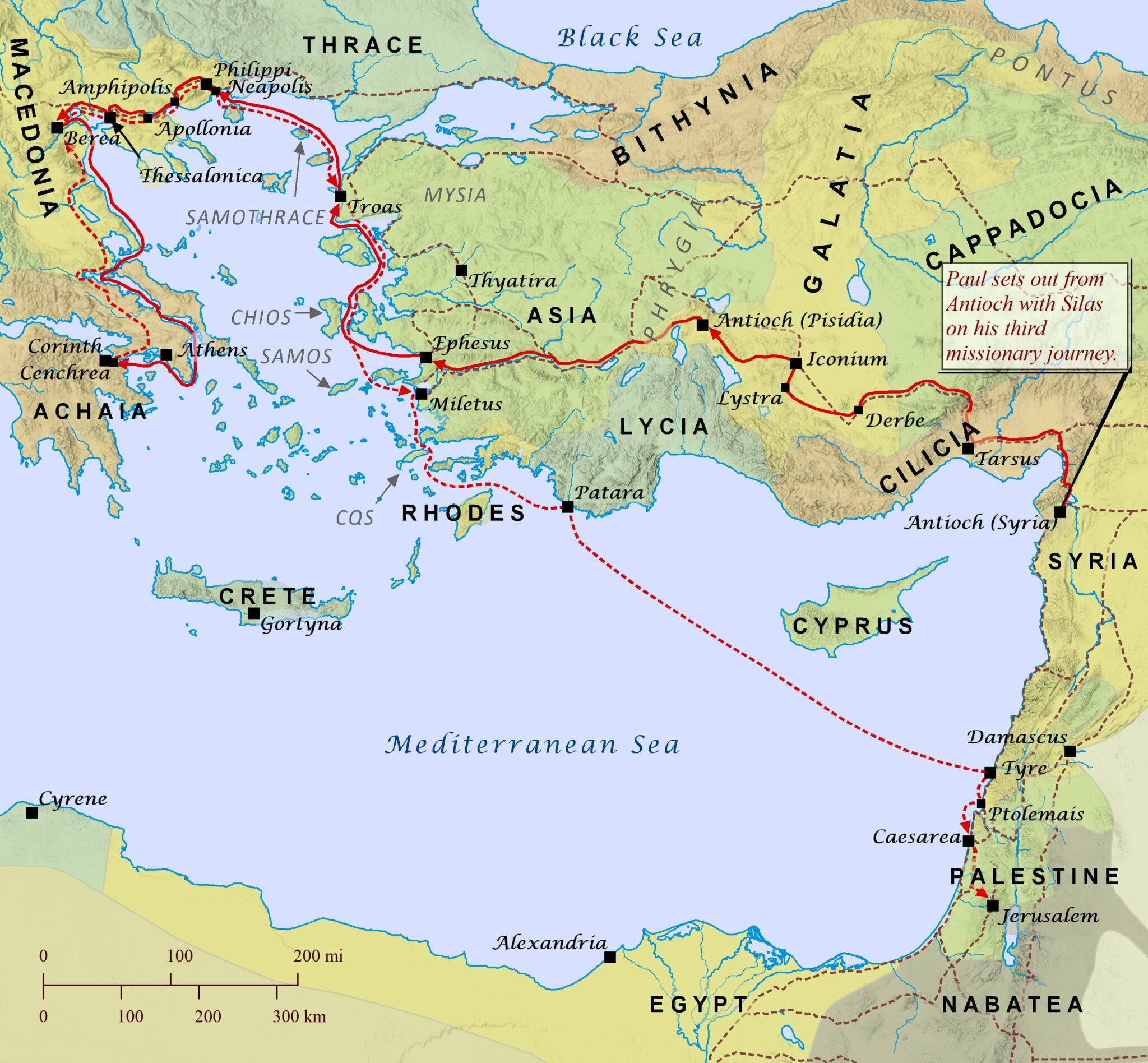The Law is perfect, but we are not. Therefore, the Law shows our imperfection and sin nature very clearly. Because the Law is perfect and we are sinful, we cannot follow the Law.
Paul was once alive apart from the Law; but when the commandment was told to Paul, his sin nature became alive and he died (v 9). The reason this happens is because 1) when we are not aware of a rule, we can’t knowingly break it, and 2) when we are told what we are not supposed to do, we suddenly want to do that thing (v 15). The Law is meant to bring life to us because it tells us what is holy and righteous, but sin uses what is meant for good to cause further rebellion and disconnection from God.
Paul admits that he too is sinful (Romans 3:9). But Paul points out that the Jewish “authorities” who have slanderously charged him (Romans 3:8) are also sinful and incapable of doing what the Law says without failing (Romans 3:9–10). No one can always do what the Law says because we have a sin nature, and so sin (through the Law) creates death and disconnection in our relationship with God (Romans 3:23).
Thus Paul asserts: This commandment, which was to result in life, proved to result in death for me (v 9).
Thankfully, sin cannot undo God’s grace in our lives, and therefore our position before Him is a forgiven position (Romans 5:20). But sin can harm the fellowship of our relationship with God, and others, particularly when we sin willingly.
Paul says he was once alive apart from the Law. This could refer to the time of early childhood, before Paul knew the difference between good and evil. This is what some call the age of accountability. This could be a verse that supports the generally held belief that babies and toddlers who die go to heaven. Another passage that supports this belief is King David expressing a belief that he will go to his deceased infant son in heaven (2 Samuel 12:23).
The Law was to result in life because it tells us the correct way to live: how God wants us to live. But because of his sin nature, the Law caused sin to be aroused in Paul and resulted in death (v 10). He says that sin, taking an opportunity through the commandment, deceived me and through it killed me.
This does not make the Law bad; the Law is holy, and the commandment is holy and righteous and good (v 12). As Paul tells his audience, the Law, the commandments from God about what is in our best interest as to how we should live, causes us to be aware of our sinfulness and lack of ability to live by the Law.
These verses infer that even believers who have been made new (v 6) still have the sin nature inside of us, and the Law points out this inner conflict. Paul is building to a point to show us a mental model to adopt for our inner-self, and show us how to separate ourselves from sinfulness, and walk in the resurrection power of Jesus.
Biblical Text
9 I was once alive apart from the Law; but when the commandment came, sin became alive and I died; 10 and this commandment, which was to result in life, proved to result in death for me;11 for sin, taking an opportunity through the commandment, deceived me and through it killed me. 12 So then, the Law is holy, and the commandment is holy and righteous and good.
Check out our other commentaries:
-
Exodus 37:1-9 meaning
The ark, the items required to carry the ark, the mercy seat, and the cherubim are constructed. ...... -
Zechariah 4:1-7 meaning
Zechariah sees a golden lampstand with two olive trees on each side. He asks the interpreting angel to explain the vision to him. The angel...... -
Genesis 14:13-16 meaning
When Abram learned of Lot’s capture, he set out in pursuit with his allies. They pursued them a considerable distance, then defeated the kings and...... -
Daniel 6:19-24 meaning
God saves Daniel from the lions and Darius was very glad....... -
Deuteronomy 16:9-12 meaning
The Israelites were to celebrate the grain harvest in the Feast of Weeks to acknowledge the Giver of the harvest—the Suzerain (Ruler) LORD. This feast......



